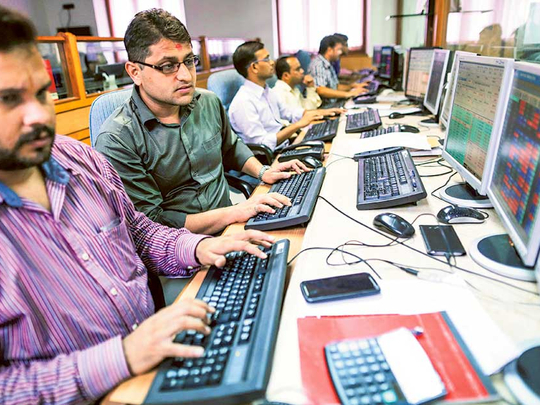
New Delhi: India’s markets regulator plans to introduce steps to slow down high-frequency trading in the next three months, according to its chairman.
The Securities & Exchange Board of India is considering mandating a fraction-of-a-second speed bump and alternating execution between computer and manual orders, Chairman U.K. Sinha said in an interview at his office in Mumbai. The regulator is also examining a proposal to prevent traders from cancelling an algorithmic order until it is confirmed by the bourse, to counter the practice of seeing an order show up momentarily before it’s cancelled.
“The worry about misuse or mishap because of HFT and collocation is not over,” Sinha said. “It’s an issue and we haven’t solved it yet.”
Collocation is the practice of placing a trader’s servers next to that of an exchange to minimise the time it takes to trade.
Sebi plans to come out with a discussion paper on the proposed changes within a month and could implement final guidelines in three months if no further consultation is required, Sinha said. Also under consideration is randomising orders rather than prioritising them on when they get to the market, and making order-book information public to ensure there’s no preferential treatment, he said.
Unequal access
Sinha’s comments come amid a growing chorus in India calling for Sebi to take action against what they say is high-frequency traders gaining preferential access at the NSE. A report by a SEBI advisory panel recently called for a full investigation into claims of collusion between the exchange and an HFT firm.
Placing orders without any intention to trade is not “a healthy practice” as it is a manipulative strategy that disrupts the markets, Sinha said. In 2012, the watchdog fixed penalties on trading firms that place a large number of orders that don’t result in trades.
SEBI is also planning guidelines on how optical fibres should connect high speed traders to collocation facilities and exchanges and how to distribute and process orders sent to exchange servers, Sinha said, without providing further details.
High-frequency and algorithmic transactions now account for 40 per cent of total volume in India, the highest proportion in the developing world and up from the low single digits five years ago, according to Aite Group, a Boston-based consulting firm. Sebi, which issued broad guidelines on HFT in 2012 and 2013, said in December it’s considering new restrictions.
“I don’t want to be the toughest regulator in the world,’’ Sinha said. “We want to be assured that things will be orderly and there are fewer chances of negative surprises and deviant behaviour.’’












